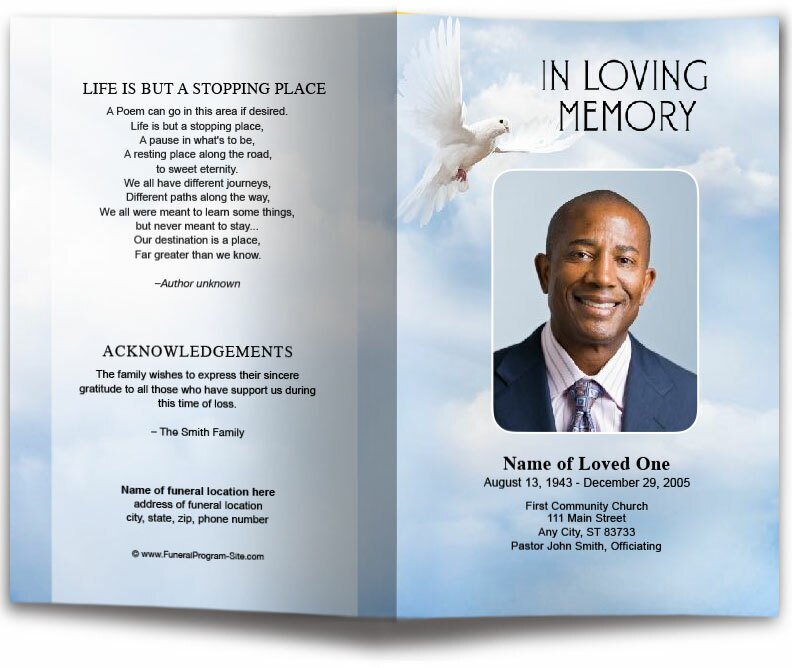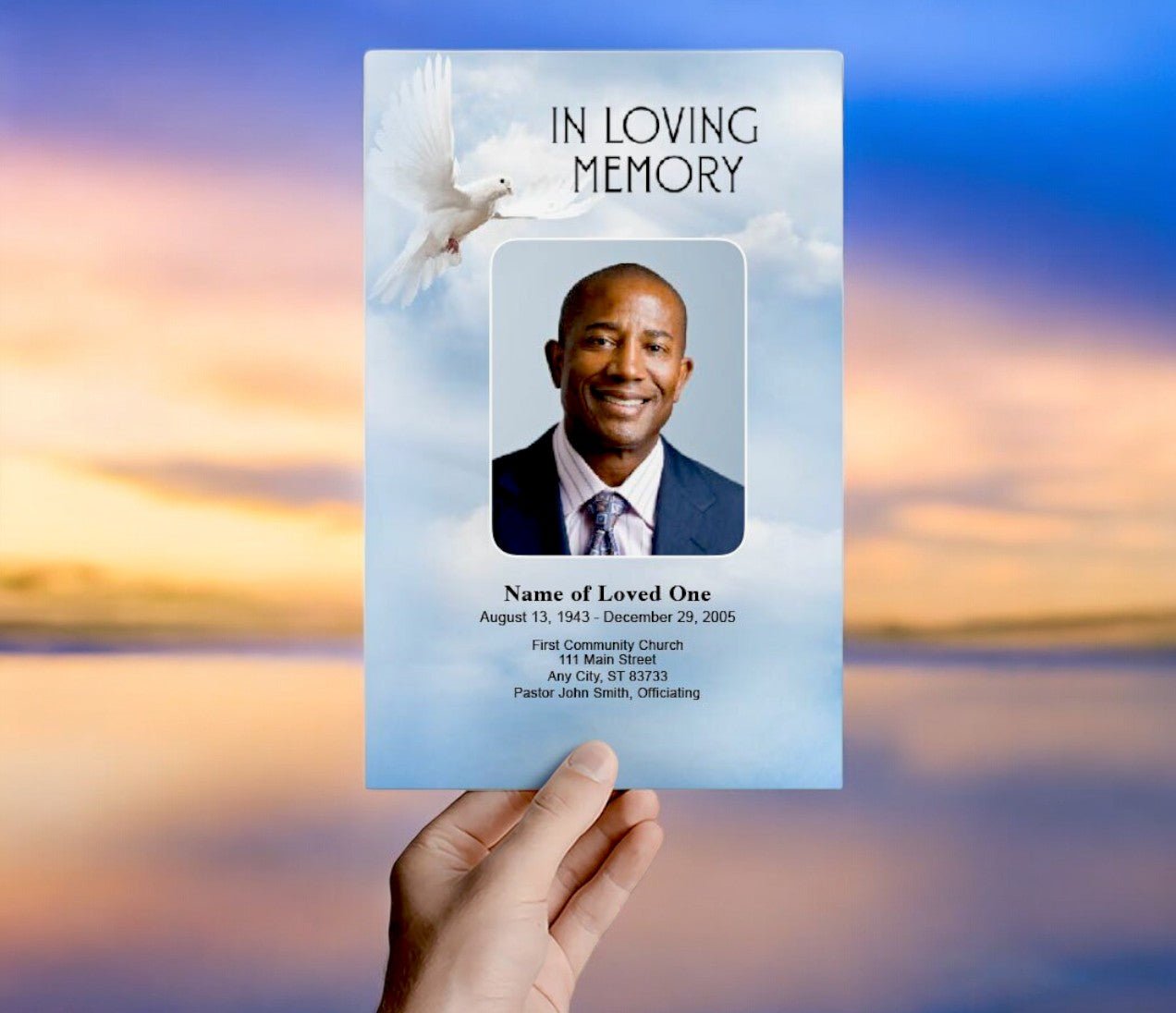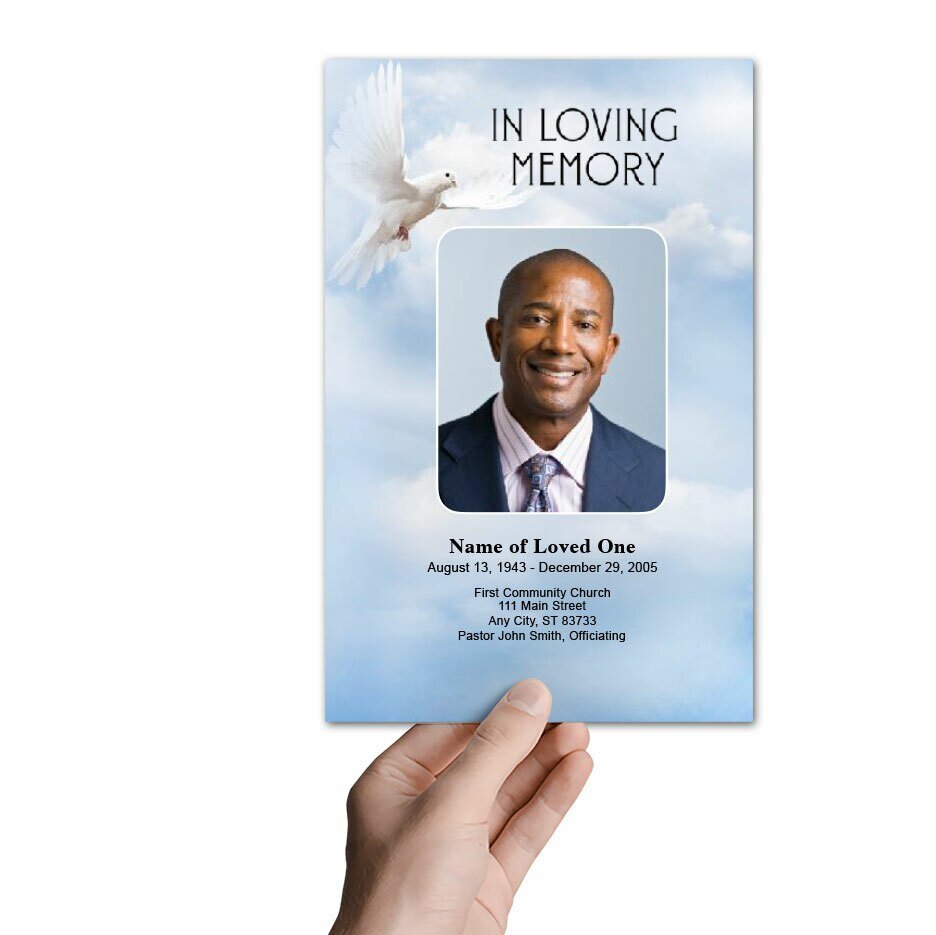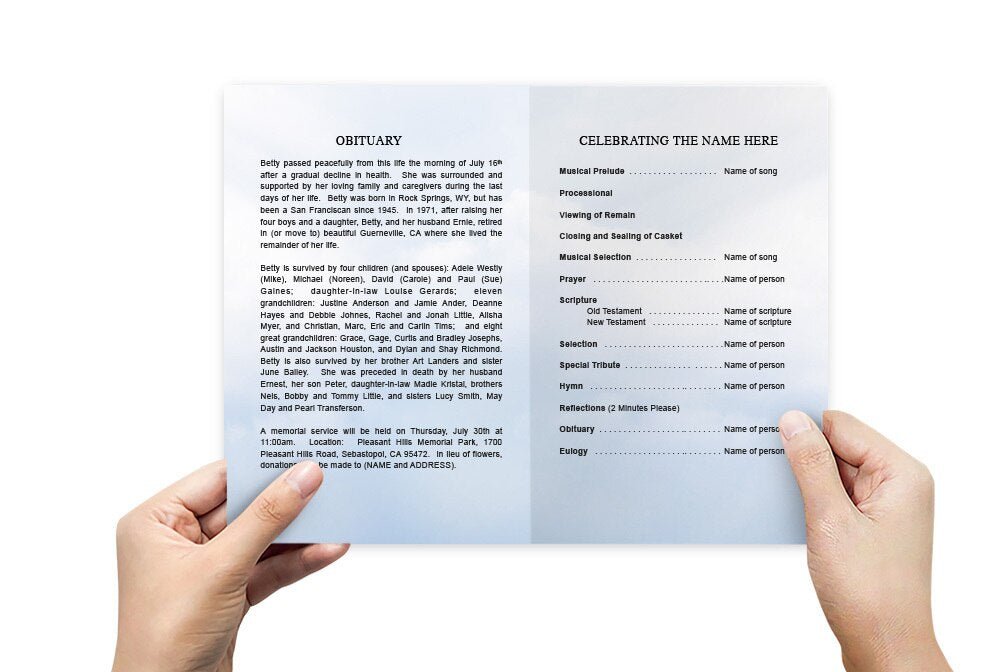Funeral Program Wording: Crafting Meaningful Messages to Honor a Loved One

A funeral program is an essential part of a memorial service. It serves not only as a guide for attendees but also as a cherished keepsake that captures the essence of the deceased’s life and legacy. The wording within a funeral program is particularly important, as it helps convey the right tone, message, and sentiment. Crafting appropriate and heartfelt funeral program wording can be challenging, especially during a time of grief. This article provides guidance on how to write meaningful and respectful funeral program wording, covering various sections such as the obituary, order of service, tributes, and more.
Importance of Thoughtful Funeral Program Wording
Funeral program wording is significant because it creates a narrative that celebrates the life of the deceased while offering comfort to those left behind. The words chosen can evoke memories, convey love and respect, and provide solace to the grieving family and friends. Thoughtful wording helps set the tone of the memorial service, whether it is solemn, reflective, or a celebration of life. The following sections outline how to craft each part of a funeral program with care and consideration.
1. Cover Page Wording
The cover page of a funeral program is the first thing attendees see, so it should set a respectful and heartfelt tone. Typically, the cover includes the following elements:
-
Full Name of the Deceased: Use the full legal name of the deceased, including any nicknames or maiden names they were known by.
-
Birth and Death Dates: These dates are usually formatted as "Sunrise" and "Sunset" to symbolize birth and passing.
-
A Meaningful Quote, Bible Verse, or Poem: The cover often features a brief, poignant line that reflects the spirit or beliefs of the deceased. For example:
- "Those we love don't go away; they walk beside us every day."
- "The Lord is my shepherd; I shall not want." (Psalm 23:1)
- "In loving memory of a life so beautifully lived, a heart so deeply loved."
-
Service Details: Include the date, time, and location of the service, and possibly the officiant’s name.
2. Obituary or Life Tribute
The obituary or life tribute is one of the most personal parts of a funeral program. It provides a summary of the deceased's life, achievements, family background, and personality. When writing an obituary, consider the following guidelines:
-
Introduction: Begin with a statement that introduces the passing of the loved one. For example, "It is with great sadness that we announce the passing of [Full Name], who departed this life on [Date]."
-
Personal Background: Include details such as the birth date and place, parents' names, education, career, and any significant life milestones.
-
Family: List surviving family members such as spouses, children, grandchildren, and siblings. You may also mention those who preceded them in death.
-
Achievements and Hobbies: Highlight the person’s achievements, hobbies, and passions. This could be their professional accolades, community involvement, or simply their love for gardening, cooking, or spending time with family.
-
Closing Sentiment: Conclude with a heartfelt line or message of remembrance, such as "He/She will be forever missed but never forgotten" or "In our hearts, your memory will live on."
3. Order of Service
The "Order of Service" section outlines the flow of the funeral or memorial service. This section guides attendees on what to expect and ensures that the service proceeds smoothly. It generally includes the following components:
- Prelude: List the music or song that will be played as guests arrive. For example, "Prelude: ‘Amazing Grace’ by the Church Choir."
- Welcome and Opening Prayer: Mention who will deliver the welcome and opening prayer.
- Scripture Readings: Include any readings from the Bible or other religious texts and specify who will be reading them.
- Eulogies and Tributes: List the names of those who will give eulogies or personal tributes and the order in which they will speak.
- Musical Selections or Hymns: Include the titles of hymns or songs that will be sung or played, and indicate if the congregation is invited to participate.
- Sermon or Message: Indicate the name of the officiant who will deliver the sermon or message.
- Closing Remarks and Benediction: List who will provide the closing remarks and benediction.
- Recessional: Conclude with the music that will be played as attendees leave the service.
4. Acknowledgments and Thank You Notes
The acknowledgment section is an opportunity for the family to express their gratitude to those who supported them during their time of loss. It can include thanks for attending the service, sending flowers, offering condolences, or providing any other form of support. Consider wording such as:
- "The family of [Deceased's Name] wishes to express our deepest gratitude for the love, support, and kindness shown during our time of loss. Your presence today is a great comfort to us."
- "Thank you for your thoughts, prayers, and condolences. Your support has been a source of strength for our family during this difficult time."
Families may also wish to acknowledge specific individuals, such as clergy, healthcare providers, or close friends who played a special role.
5. Poems, Prayers, and Inspirational Quotes
Including poems, prayers, or inspirational quotes in a funeral program can provide comfort and solace. They can reflect the faith, personality, and values of the deceased. Here are some examples:
-
Poems:
- "Do Not Stand at My Grave and Weep" by Mary Elizabeth Frye
- "The Dash" by Linda Ellis
-
Prayers:
- "The Lord’s Prayer"
- "Serenity Prayer"
-
Inspirational Quotes:
- "To live in the hearts of those we love is never to die."
- "Wherever a beautiful soul has been, there is a trail of beautiful memories."
6. Memorial or Donation Information
This section provides details on any memorial funds or charitable donations that attendees can contribute to in memory of the deceased. This might be worded as:
- "In lieu of flowers, the family requests that donations be made to [Charity Name], an organization close to [Deceased’s Name]’s heart."
- "Memorial contributions may be made to [Organization Name], which was cherished by [Deceased’s Name]."
7. Photo Collage and Captions
A photo collage of the deceased is often included in funeral programs, accompanied by captions or brief descriptions. These captions can provide context for the photos, such as:
- "Celebrating [Name]’s love for travel and adventure."
- "A life filled with joy, laughter, and love for family."
8. Personal Tributes and Remembrances
Family members or close friends may wish to include personal tributes or remembrances that reflect their unique relationship with the deceased. This could be a heartfelt note, a cherished memory, or a special message:
- "To my dearest mother, thank you for being my guiding light and my source of endless love. Your spirit will live on in all of us."
- "In loving memory of a dear friend, whose kindness and laughter touched the lives of so many. We will miss you always."
9. Closing Page Wording
The closing page of the funeral program may include a final thought, poem, or reflection. This section is often brief and serves as a gentle conclusion to the program. Here are some examples:
- "May you rest in peace and know that you are loved beyond words and missed beyond measure."
- "Gone from our sight, but never from our hearts."
- "Until we meet again, may God hold you in the palm of His hand."
Tips for Crafting Meaningful Funeral Program Wording
-
Reflect the Deceased’s Personality: Consider the unique qualities, passions, and values of the deceased. Tailor the wording to reflect their personality, whether they were spiritual, humorous, compassionate, or adventurous.
-
Keep it Concise and Respectful: While it is important to capture the essence of the deceased, avoid overly lengthy wording. Be concise while ensuring the message remains heartfelt and genuine.
-
Consider the Audience: Remember that funeral programs are for the attendees as much as they are for honoring the deceased. Include wording that resonates with the family, friends, and community.
-
Use a Consistent Tone: The tone of the program should be consistent throughout. Whether you choose a solemn, formal tone or a more uplifting, celebratory tone, maintain that style in each section.
-
Proofread Carefully: Ensure that all names are spelled correctly and that the dates, times, and other details are accurate. Errors can detract from the program’s impact and may cause unintended distress.
Funeral Program Templates Wording Conclusion
Funeral program wording is a deeply personal and important element of any memorial service. It provides an opportunity to honor a loved one’s memory while offering comfort to those who are grieving. By carefully choosing the right words for each section, from the cover page to the closing message, families can create a meaningful tribute that celebrates a life well-lived and provides solace to all who attend.





























